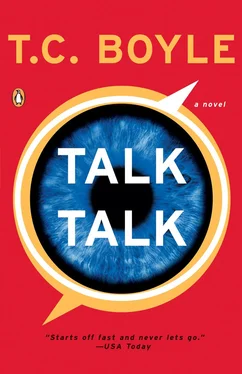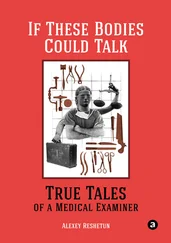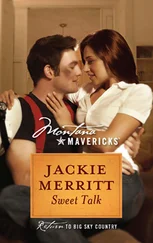It was a mistake to go back to Peterskill, he knew it-he'd known it all along. But it sang to him in his blood-it was what he knew-and his daughter was there. And Sandman. There was a house in Garrison, up in the woods and with a view of the Hudson, late nineteenth century, stone, with hand-hewn beams, remodeled in what Sandman called the prevailing bourgeois fashion and dernier cri of consumer convenience, and it was his for the taking, fifty-five hundred a month with an option to buy, Sandman contributing the deposit and talking up the owners, who were retiring to Florida but not yet entirely sure they wanted to give up the house for good, the credit check done and the papers just waiting there for Bridger Martin to blow into town and affix his signature. That was all to the good, and after vagabonding around the country on a nice extended vacation, it would be a relief to get there and start over-the schools “were” good and Natalia could shop till she dropped in Manhattan. He wouldn't want to hit any of the old haunts, though, wouldn't want to run into anybody, even his mother-especially her. Or Gina. It wouldn't do to have people calling him Peck, not anymore. But Garrison was the next town up the line and he figured he'd be spending most of his time in the City, anyway, and with Sukie it was just a matter of hooking back up with the lawyer and getting those Sunday visits quietly arranged again. He was just “Dad” to her, not Peck or Dana or Frank or Bridger, just “Dad,” and no one the wiser. Or maybe that was a dream. Maybe the cops would be waiting for him at McDonald's, because why wouldn't Gina sell him out, why wouldn't her mother?
“You are ready?” Natalia slid into the seat beside him. She was wearing a pink visor with a designer logo that had probably cost fifty bucks, fifty bucks at least. When she saw he was looking at it, she said, “For travel. For the sun. Is there not sun in Las Vegas?”
“Yeah,” he said, distracted, “yeah, there is. Good thinking.” He flicked the remote for the garage door and the pallid light flooded in. He was thinking of what they were leaving behind, of how everything, from his knives to his saucepans to the Viking convection oven and the new microwave, would occupy their niches until the place was sold and everything the new owners didn't want or couldn't use was dumped in the trash. No regrets, he told himself as he started up the car-one of the finest production cars in the world, in the history of the world-and backed out into the morning.
What he didn't notice-what he failed to notice because he was still there, upstairs, roaming the uninhabited rooms of the condo, lingering in his mind over all the dispensable things they'd accumulated and left in their wake-was the black Jetta, pulling out behind him.
HE'D FALLEN ASLEEP, couldn't help himself, so exhausted he might as well have been drugged, and when he woke the side of his face was pressed up against the window of the car and Dana was clinging to him like a spare set of clothes, the rhythm of her breathing synchronized with his own. There was a faint gray infusion of light. Nothing moved. The yellow lamp at the end of the lot was a blur, perched somewhere in intermediate space, the fog wiping away everything else. His left arm had gone numb where he'd slept on it, and his shirt felt damp and gummy, the price of sleeping in the car. Which smelled stale, as if they'd been living in it for months and not just overnight, and he wondered about that, about the odors of confinement, and for a moment he closed his eyes and the car was a bathyscaphe dangling over an abyss in the dark canyons of the sea, the twisting shapes of the deep fish, the wolf fish and coelacanth, passing in review. Then he opened them again on nothing, on a seep of grayness, and thought to check his watch.
Slowly, with exaggerated care-no reason to wake her yet-he extricated his dead arm and brought his wrist into view. He wasn't surprised particularly to see that it was just before six in the morning-a horrendous hour, an hour he encountered maybe two or three times a year when he lost his head partying with Deet-Deet or Pixel and fell into the old ineluctable videogame trance-but he did feel just the slightest tic of irritation with the fact that he wasn't in a bed in a motel sleeping till noon, noon at least. He'd been the one for giving it up the night before-they had the wrong condo; the guy had moved or died or been jettisoned into outer space-but Dana had been insistent. Even as he was wheeling out of the lot, bent on finding a place to eat and a motel with cable, she was brandishing her worn file folder, inside of which were the affidavit from the San Roque courthouse and the faxes with the thief's police record and photo. “This,” she said, spitting it out, “is all we need. Show this to the police and we've got him.”
“Right, but we have to find him first,” he'd said, exasperated, but still turning his face to her so she could see him form the words. “And when we find him, then what? Where are the cops? You think they'll just happen to be driving by?”
“I dial 911. As soon as I see him. I dial 911 and say there's a crime in progress, a-a burglary, okay? A crime in progress.”
“And then what?”
“Then I show them this”-the folder-“because isn't this a crime? In progress? Isn't it?”
They were out on the main road by then, the headlights of the oncoming cars illuminating her face in flashes, as if they were back under the strobe at Doge and he was seeing her for the first time. For a moment, he felt himself slipping into nostalgia, into tenderness-she'd never seemed more beautiful, her eyes struck with light, her lips parted with the onrush of her rhetoric, her face held aloft and glowing in the excelsior of her hair, like a gift in a box-but he resisted it. He was hungry, tired. He was looking for a place to eat, nothing fancy, a burger, anything. She was right, he knew it, but he wasn't ready to admit that yet, not until he had something in his stomach, anyway.
“What are you doing?” she demanded then. “Giving up?”
A fast-food place loomed up on the left and he flicked on the blinker and hit the gas to spin into the lot ahead of the oncoming traffic. All in one motion he nosed into a parking space, jammed the lever into park and swung round to face her. “No,” he said, “I'm not giving up. I'm just hungry, that's all. It's been a long day, don't you think? Can't we just sit here for half an hour and have a Big Mac and a Filet o' Fish-no, no, forget the calories, forget the cholesterol and trans fats, let's just gorge for once-and think things out? Because we're close, I know it, you're right, and we can nail this bastard, absolutely, but let's just take a minute to regroup, okay? And eat?”
He didn't know how much of that she got-he never did know with her, but he was always conscious of his lips and his tongue and he liked to think they were communicating. That was the case now. They sat there a moment under the yellow-and-red glare of the big M and he watched her flip the hair away from her face with a quick thrust of her chin. Her eyes narrowed. Her voice went low, so low it was as if she'd just been punched in the stomach. “She was lying, you know.”
And so here they were.
They'd stocked up on grease and nitrates and sugar, Dana so anxious she was lifting right out of her shoes while he ordered and paid and then she looked at him as if he were a pedophile when he told her he had to use the men's-“What if we miss him?” she signed. “What if he's coming in right now? Right this minute?” In the car, the brown bag in her lap, her fish sandwich as yet untouched, she kept saying, “You know he's in there, you know it-or wherever he is, he'll be back-and what we need to do is just sit there all night, all day tomorrow, all week if necessary, and keep the binoculars on those windows till we see him for sure. Positive identification, isn't that what they call it? And that's it. We see him, he's”-one of her favorite expressions-“dead meat.”
Читать дальше












